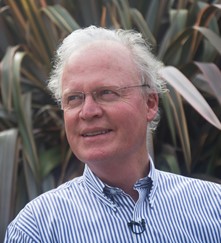 This issue of the Australian Journal of Emergency Management (AJEM) focuses on recovery and how we best support people and communities post-disaster.
This issue of the Australian Journal of Emergency Management (AJEM) focuses on recovery and how we best support people and communities post-disaster.
Recovery is now integral to emergency management, although the concept is barely 30 years old; being introduced in the mid-1980s. It is now a priority alongside prevention, preparedness and response, but is not yet well understood, lacking consensus about the priorities and methods for effective recovery.
Following individuals and communities after emergencies shows recovery is a complex and poorly understood process full of challenges and adjustments. During this time there is risk of losing more than was affected by the event itself.
Poorly managed recovery is often identified as ‘the second disaster’; the unnecessary one. Anecdotal evidence indicates that the quality of a person’s recovery depends more on how well they manage the recovery years than what the event does. To minimise long-term destructive consequences, greater understanding of recovery is needed.
Those trying to recover complain of how slowly the authorities respond, regulations that get in the way, how little they can get done and how much authorities procrastinate. They blame themselves or each other, believing that they should do better. Some regret that they made decisions too quickly, before they knew what they wanted and do not like their new life.
Some people who, in the first years, are active in rebuilding and involved in recovery found valued activities somehow got lost, including attachment to home, relationships with partners who are now ‘just good friends’, loss of closeness with children and family, deep hurt from the misunderstanding and judgement they received from friends and relatives or other community members. There is often a period of exhaustion after reconstruction that introduces an ‘identity crisis.’ They need to adjust to a changed sense of self, meaning and purpose in life that was never invited, but imposed by the emergency. It can result in the loss of the relationships, social life, activities, hobbies and interests, investment in career and the long-term life goals that are essential to the sense of self.
Many do recover well and gain meaning from the experience. They make creative changes and become clearer about what is important. However, the potential consequences involve life-changing events. The opportunity for creative adaptation (resilience) is key to recovering well. These aspects of recovery depend on quality rather than quantity; the ‘how’ rather than ‘what’ is done. The demand for government to spend more money and provide more services does not guarantee better recovery. It requires greater understanding of recovery, where early priorities are based on long-term realities and how community expectations can be enlisted. It requires knowledge, strategies and methods supported by policies and evidence.
In emergencies, recovery implies returning a person, family or community to a previous state of being, covered or immersed in the protective medium of a familiar world. It implies the emergency strips away the life-sustaining medium, leaving them exposed. This loss can be called de-covery, meaning to disrupt, damage or destroy the social, physical, built and financial medium of life.
If assistance and expectations are not coordinated and appropriate, instead of re-covery we have continuing de-covery. If it is coordinated with policies and support arrangements that understand the priorities as they unfold and help to reform the medium, then we have recovery. Yet many people object to recovery as implying returning to pre-disaster conditions. They say their lives will never be as they were. They say recovery depends on letting go of their old life and finding a new one; forming a new medium for a changed life. They often prefer words that look to a new normal like ‘renewal’. Perhaps a different word is now needed–perhaps ‘procovery’ meaning towards a new medium. Such word play points to the need to consider the recovery processes for people and communities recovering and to develop better concepts to understand and help them.
This edition brings together aspects of recovery by authors from diverse backgrounds providing their views and updates on the latest research in this most important area.
Dr Rob Gordon
Clinical Psychologist
Consultant to Victorian Department of Health and Human Services and Australian Red Cross


